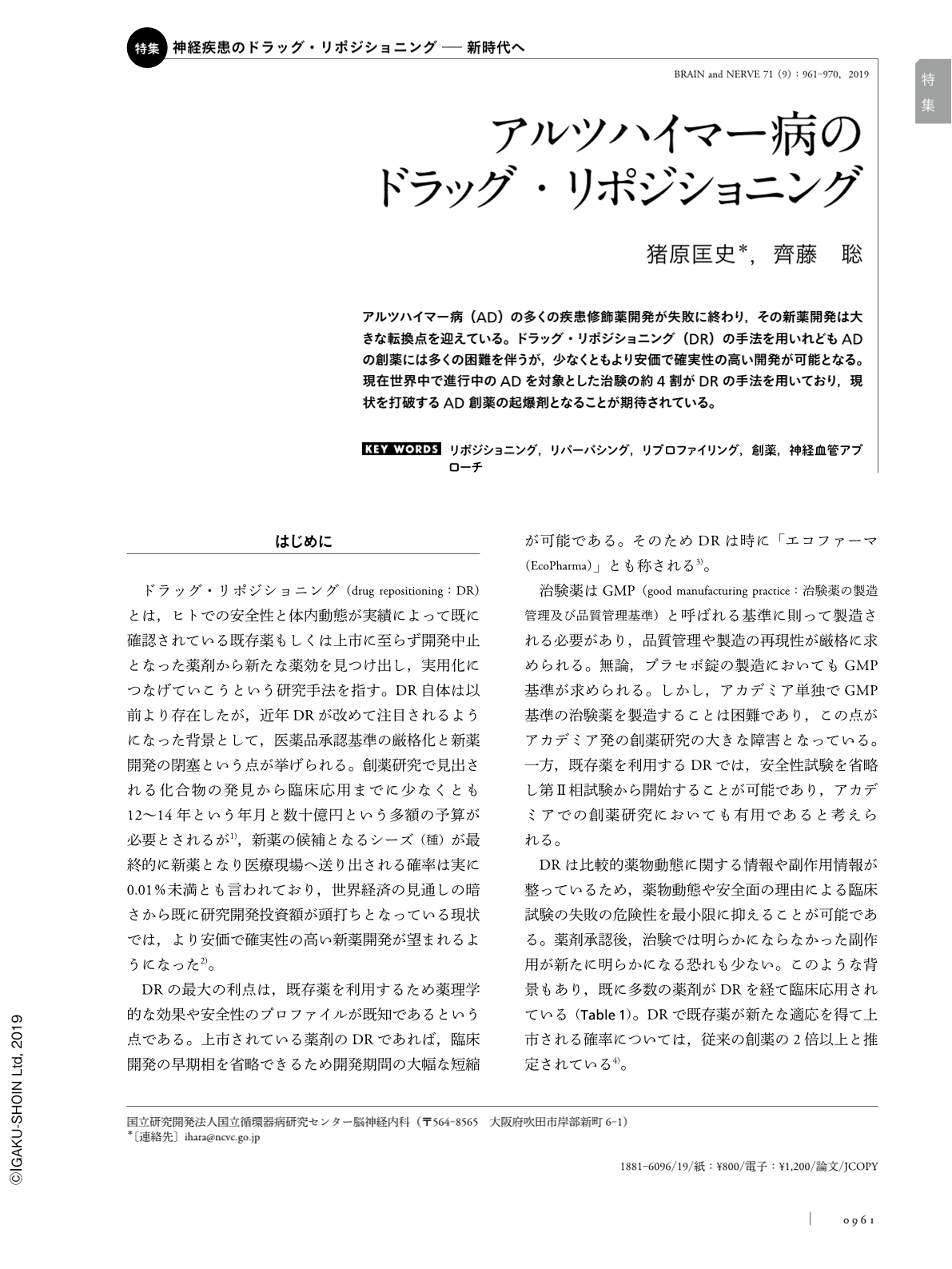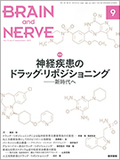Japanese
English
- 有料閲覧
- Abstract 文献概要
- 1ページ目 Look Inside
- 参考文献 Reference
アルツハイマー病(AD)の多くの疾患修飾薬開発が失敗に終わり,その新薬開発は大きな転換点を迎えている。ドラッグ・リポジショニング(DR)の手法を用いれどもADの創薬には多くの困難を伴うが,少なくともより安価で確実性の高い開発が可能となる。現在世界中で進行中のADを対象とした治験の約4割がDRの手法を用いており,現状を打破するAD創薬の起爆剤となることが期待されている。
Abstract
To date, all clinical trials of disease-modifying drugs for Alzheimer's disease (AD) have been unsuccessful, making investments into AD drug development very risky despite the high unmet need. Drug repositioning or repurposing approaches are relatively less expensive and more promising compared to novel drug development in AD. About 40% of clinical trials for AD currently in progress across the world use the drug repositioning method. They are expected to be a trigger for AD drug discovery that breaks the current deadlock situation. By using drugs approved for other indications, these clinical trials target dysregulated pathways of AD with different or a combination of modes of action, including anti-amyloid, anti-tau, anti-inflammatory, metabolic, neuroprotective, and neurotransmission-based approaches. In these clinical trials, cardiovascular drugs such as insulin, cilostazol, probucol, telmisartan, and dabigatran are tested for their effect on different mechanisms of AD pathology. This is in line with the recent emphasis that AD should be studied as a complex multifactorial disorder, not dominated by one dominant biological factor such as beta-amyloid, and without disregarding any relevant pathologic factor, such as vascular dysregulation. It is strongly expected that drug repositioning approaches will create a paradigm shift in treatment approaches for AD patients.

Copyright © 2019, Igaku-Shoin Ltd. All rights reserved.


